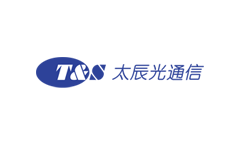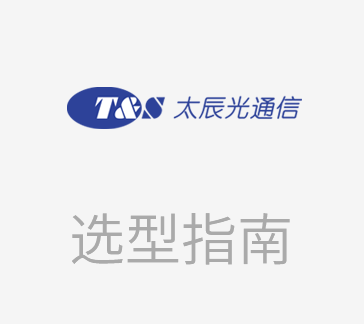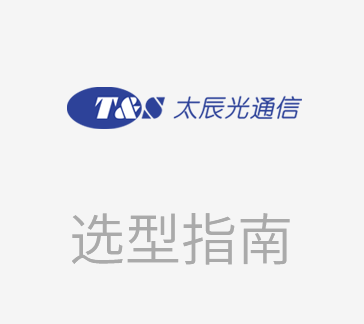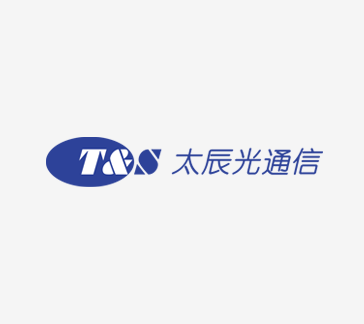How to Use Bare Fiber Adapters?




How to Use a bare fiber adapter?
The traditional optical fiber connection is to assemble different optical fiber connectors according to a certain length of bare optical fibers, and process them into jumper wires in the factory. This process includes a series of complex technological processes such as threading parts, fiber ferrule assembly, ferrule injection, colloid curing, fiber cutting, degumming, rough grinding, intermediate grinding, fine grinding, and polishing.
In optical communication, it is often necessary to temporarily connect bare fibers and optical fiber equipment, and it is often too late to make jumper wires at the wiring site. Optical fiber fusion is a method, but it requires a fusion splicer and can only solve the connection of two optical fibers, but cannot solve the problem of connecting bare fibers to optical fiber equipment interfaces. The use of bare fiber adapters can be used directly for the connection and coupling of bare fibers with other optical devices.
Ⅰ. What is a bare fiber adapter?
A bare fiber optic adapter is a medium for connecting bare fibers to fiber optic equipment. One side of the adapter is used to connect bare fibers, and the other side is a fiber connector.
Bare fiber optic adapters are mainly used to test bare fiber patch cords and pigtails without end face treatment. The bare fiber can be directly connected to standard FC, SC, ST and LC to detect the loss during connection. The bare optical fiber can be inserted into the bare optical fiber optic adapter through simple processing, such as peeling off the coating layer and cutting the end face. The bare optical fiber can be used as a temporary connector with optical fiber connector for testing and temporary connection of optical fiber devices or systems, making it easy to operate.
Another advantage of bare fiber optic adapters is that they can be recycled, which is convenient and cost-effective. Especially suitable for connecting to optical power meters, optical time domain reflectometry OTDRs and various other instruments, for emergency connection in some field wiring emergencies, and for in-situ functional testing without the need for additional permanent connectors. For technicians and contractors, it will make fiber testing and network maintenance easier, faster and more efficient.
Ⅱ. Applications of fiber adapters
1. Temporarily connect the exposed fiber;
2. Test bare fibers, fibers on reels, and fibers before and after installation;
3. Production line of optical fiber equipment;
4. For quick and temporary fiber optic connections in communication systems;
Ⅲ. How to use bare fiber adapters?
1. Stripping fiber
Use optical fiber strippers to strip the coating layer of the optical fiber. The length is usually 15~20mm. Reserve the length according to the actual situation of the bare optical fiber adapter used, and then clean the optical fiber with alcohol or dust-free paper.
2. Insert the bare fiber into the bare fiber adapter
Press and hold a spring-loaded button on the bare fiber optic adapter, press down the switch, and slowly push the fiber along the guide hole until the ceramic ferrule protrudes by about 3-5mm, and release the switch to allow the fiber to be positioned. Check the condition of the fiber end face and readjust the fiber if necessary.
3. Lightly scratch the bottom of part of the optical fiber with an optical fiber scribing pen, break the fiber, and the operation is completed.
The connector of the bare fiber adapter is docked with the connector end through the adapter, and the optical parameter test can be performed. If the test parameters are very poor, check that the fiber front end is well cut, cut it again, and test. The bare fiber components that pass the parametric test can be used or spliced into the system.
- |
- +1 赞 0
- 收藏
- 评论 0
本文由飞猫警长转载自T&S Blogs,原文标题为:How to Use a Bare Fiber Adapter?,本站所有转载文章系出于传递更多信息之目的,且明确注明来源,不希望被转载的媒体或个人可与我们联系,我们将立即进行删除处理。
相关推荐
Cleaning Fiber Optic Adapters is a Mandatory for Jumper Installers
In this article, we will explain the complexity of cleaning fiber optics and the importance of cleaning fiber connectors. Fiber optic installers are well aware that the cleanliness of connectors and end faces can improve the performance of network systems.
What Aspects Should Be Paid Attention to when Choosing Fiber Optic Adapters?
When choosing the fiber optic adapter, the above important properties can be used to select the relatively high quality and stable fiber optic adapter. Of course, there are other factors that affect the quality, such as tensile strength, compliance standards, etc.
How to Define the Three Value Standards of the End Face of the Patchcord?
The two end faces of the fiber must be precisely butted so that the light energy output by the transmitting fiber can be coupled to the receiving fiber to the maximum extent. The successful connection of optical fiber lines depends on the quality of the physical connection of the optical fibers.
太辰光(T&S)光纤连接器选型指南
目录- 公司简介 Company profile 陶瓷插芯 Ceramic Ferrule 光纤连接器 Fiber Optic Cable Assembly 光纤元器件 Fiber Optic Components 波分复用器 WDM FBT光纤耦合器 FBT Coupler PLC分路器 PLC Splitter 光纤光栅 Fiber Bragg Grating 光纤模块、有源光缆及有源电缆 Fiber Optic Transceivers,AOC&DAC
型号- FOT-SC/APC,CG-XX/G652D/1.5M,D12F-SC/UPC/SM/∅0.9/L/L1M,SMC-P-1X2-163/15-10/90-FC/APC-1-G652D-∅3X60,FEN-SC-S4,FEN-SC-S5,MC-FC/APC-FC/UPC/SM/∅3/L,FEN-SC-S1,PM-FC/UPC(N)-FC/UPC(N)/1550/∅2/L-SA,FEN-SC-S2,FEN-SC-S3,ATIL-FC/APC/SM/05/NP/L,MPO/APC/12F-FC/UPC/SM/∅0.9-L/L1-RJ,PLC-1X8-A-09/L1-LC/UPC-09/L2-LC/UPC
太辰光(T&S)光纤通信产品选型指南
描述- 深圳太辰光通信股份有限公司成立于2000年,于2016年12月在深圳证券交易所创业板上市,证券代码300570,公司的主营业务为各种光通信器件及其集成功能模块的研发、生产和销售。光通信器件主要包括高密度光纤连接器、常规光纤连接器件、PLC光分路器、波分复用器等无源光器件、光模块、有源光缆等有源光器件以及陶瓷插芯、MT插芯,平面光波导晶圆和芯片等基础元器件。
型号- TSSLS-NCNEE3C,400G QSFP-DD TO 4X100G QSFP56 AOC,200G QSFP56 SR4,400G QSFP-DD TO 8X50G SFP56 DAC,TSSLS-NXXCE3T,TSQM4-NAAJB1C,TSQS-PC40G-XXM,TSD4Q-85M-XXXC,TS-RD1,TS-RD1-1U,TSD8S-85M-XXXC,TSQSQ-85G-XXXC,TSQ45-85G-XXXC,TSQM4-NAAJB1T,TS-FD2,TSSLS-NXXCE3C,TS-FD1-1U,TS-FD1,40G QSFP+TO 4X10G SFP+DAC,PD2-6M,TSSLS-NCNEH8C,40G QSFP+ TO 4X10G SFP+ AOC,TSQS-PC56G-XXM,FEN-LH-SMA,TS-FD2 SERIES,56G QSFP+DAC,40G QSFP+ ER4,TSQD-PC4HG-XXM,200G QSFP56 AOC,10G SFP+ ZR,FEN-LH-LC,100G QSFP28 PSM4,TSSLS-CXXEE3C,25G SFP28 SR,TSSLS-NAACBIT,TSSLS-NAAEAIT,TSQDQ-4PC1HG-XXM,100G QSFP28 AOC,TSSLS-NAACB1C,TSSLS-NAAEA1C,FEN-LH-SDL,10G SFP+ DWDM,MD2-1M24L,TSQL4-E11GH7C,TSQSS-PC2HG-XXM,TSQL4-F22JH4C,FES-LC-PA,25G SFP28 DAC,25G SFP28 CWDM,400G QSFP-DD DAC,400G QSFP-DD DR4,TSSLS-NCNCE3C,400G QSFP-DD TO 2X200G QSFP56 DAC,MD1-3M24L,TSSP-PC25G-XXM,TSD2Q-85L-XXXC,200G QSFP56 TO 4X50G SFP56 AOC,56G QSFP+ AOC,TSSP-PC56G-XXM,TSQS-PC2HG-XXM,100G QSFP28 SR4,10G SFP+ LR,TSQM4-NCNJC3C,TSQSS-PC1HG-XXM,TS-RD1 SERIES,TSSSS-85H-XXXC,TSQDQ-2PC2HG-XXM,50G SFP56 AOC,40G QSFP+ DAC,TS-FD1 SERIES,TSQSQ-85H-XXXC,TSQM4-NAALAIC,FEN-SC-FUNNEL-1,PD2-24L,FEN-SC-FUNNEL-2,TSQM4-NAAGB1C,TSQM4-NAAGBIT,TSSSS-85E-XXXC,40G QSFP+ LR4,TSSLS-CXXCE3C,FES-SC-PA,TSQS-PC1HG-XXM,200G QSFP-DD TO 2X100G QSFP28 AOC,100G QSFP28 TO 2X50G QSFP28 AOC,TSSLS-DXXEE4C,10G SFP+ DAC,25G SFP28 BIDI,TSSLS-NCNEE3T,100G QSFP28 LR4,TSQ4S-85L-XXXC,TSQSQ-85L-XXXC,100G QSFP28 DAC,TSDM4-NCNMC3C,25G SFP28 ER,10G SFP+ AOC,10G SFP+ BIDI,400G QSFP-DD TO 8X50G SFP56 AOC,800G QSFP-DD AOC,TSQM4-NCNGC3C,TSDR8-NAAMATC,TS-FD2-2U,10G SFP+ CWDM,10G SFP+SR,FEN-LC-2,25G SFP28 DWDM,TSSSS-85C-XXXC,TSDSD-85N-XXXC,100G QSFP28 TO 4X25G SFP28 AOC,TSQDS-8PC50G-XXM,800G QSFP-DD SR8,10G SFP+ ER,200G QSFP56 DAC,100G SFP-DD AOC,TSSLS-DXXCK8C,TSQ2Q-85J-XXXC,TSSLS-NCNCE3T,TSQSQ-PC2HG-XXM,TSD2Q-85M-XXXC,FEN-LH-SC,TSSLS-NXXEE3T,200G QSFP56 FR4,40G QSFP+ AOC,50G SFP56 DAC,100G QSFP28 TO 4X25G SFP28 DAC,100G QSFP28 ER4,FEN-SC-1,TSDSD-85M-XXXC,400G QSFP-DD FR4,TSDL4-E11MD3C,100G QSFP28 CWDM4,TSSLS-NXXEE3C,25G SFP28 LR,40G QSFP+PSM4,TSQL4-F22JE3C,400G QSFP-DD TO 2X200G QSFP56 AOC,TSTST-85K-XXXC,400G QSFP-DD AOC,TSQSQ-85J-XXXC,TSQ4S-85J-XXXC,TSD85-85L-XXXC,TSQL4-E11JE3C,TSDR8-NAANA1C,TSSLS-NCNCKBC,200G QSFP56 TO 4X50G SFP56 DAC,TSQL4-E11LD3C,400G QSFP-DD TO 4X100G QSFP56 DAC,200G QSFP-DD TO 8X25G SFP28 AOC,TSSLS-NCNCH4C,MD1-2M6M,200G QSFP56 TO 2X100G QSFP56 DAC,25G SFP28 AOC,PD1-24L,TSQL4-E11GE3C,400G QSFP-DD SR8,40G QSFP+SR4,TSQSS-PC40G-XXM,TSSLS-DXXCH4C,TSSP-PC192-XXM
Introduction of the Fiber Loss Budget Standard
According to the TIA-568 standard, the transmission attenuation of 850nm over OM4 fiber is 3.5 dB/km. Based on the distance of the link, we can calculate the standard loss of 0.4dB.
Five Tests to Ensure the Fiber Patch Cord Quality
The quality of fiber patch cords affects the entire fiber-optic link. Each fiber patch cord must be strictly tested before leaving the factory. So what tests will a fiber patch cord manufacturer do to ensure the high quality of patch cords?
LC Duplex Fiber Optic Connectors for High Density Environments with the Features of High-reliability, Low-cost And High-density
With the rapid application of 5G, how to provide a high-density, low-cost, easy-to-manage, and high-reliability network cabling system for data centers has become an increasingly important requirement. The LC duplex fiber optic connector is a high-reliability, low-cost, high-density wiring solution.
End-Face Cleaning is Crucial to Network Performance
Contaminants on the connector end face will directly affect how well the connection performs, resulting in signal deterioration that will be noticeable owing to the presence of high insertion loss and back reflection, as well as the possibility of inflicting irreversible damage to the end face.
Classification and Typical Application of Fiber Optic Connectors
As a transmission medium, optical fiber will inevitably produce various connections when it reaches the terminal. The research, development, and application of fiber optic connector came into being to ensure the reliable connection between optical fibers.
Detailed Introduction of Fiber Jumper Interface Types PC, APC, UPC
In order to make the end faces of the two optical fibers better contact, the ferrule end faces of the fiber jumpers are usually ground into different structures. Common grinding methods are PC, APC, UPC. PC/APC/UPC represents the front face structure of the ceramic ferrule.
Introduction to Fiber Optic Connectors
The main function of the optical fiber connector is to quickly connect two optical fibers so that the optical signal can be continuous to form an optical path. Optical fiber connectors are movable and reusable, and they are also the most indispensable and most used passive components in optical communication systems.
Analysis of Key Technologies of Fiber Optic Connectors
The fiber optic connector is to realize the accurate transmission of optical signals to achieve the purpose of communication. Fiber optic connectors have strict requirements on processing and assembly, especially multi-core fiber optic connectors have strict requirements on size and dimensional tolerances.
Classification and Instruction for Use of Fiber Optic Patch Cord
Fiber optic patch cord refers to connector plugs installed at both ends of the optical cable to realize the active connection of the optical path; One end with a plug is called a pigtail. Fiber optic patch cords are similar to coaxial cables, except that there is no mesh shield. The center is the glass core of light propagation.
电子商城







































































































































































































登录 | 立即注册
提交评论